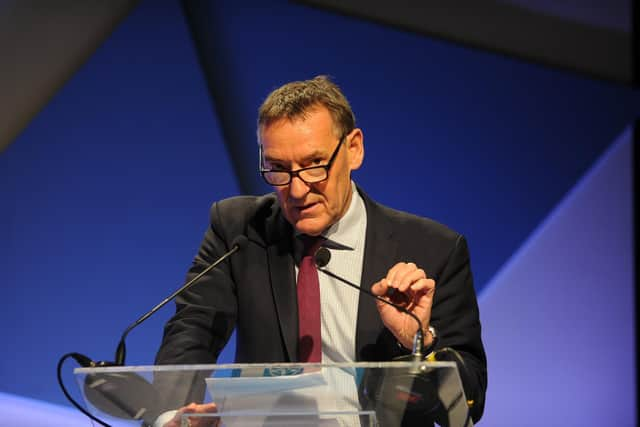Levelling up agenda being undermined by a lack of funding for the North of England, the Government warned
Ministers heralded the launch of the UK Shared Prosperity Fund (SPF) as a “bold new approach to improve livelihoods and opportunity” across the nation ahead of its launch next month.
The fund is seen as a central pillar of the Government’s levelling up agenda, providing £2.6bn for local investment by March 2025 and replacing European Union funding,
Advertisement
Hide AdAdvertisement
Hide AdHowever, analysis released exclusively to The Yorkshire Post has highlighted concerns that funding commitments have been diluted for the North of England.


The research conducted by the Northern Powerhouse Partnership, a leading voice for business and civic leaders in the North, with the York-based Joseph Rowntree Foundation and Teesside University has shown every English region except Cornwall would see funding cut by half compared to the EU model the SPF is replacing.
The Tees Valley stands to lose the most, with a fall in funding of £19 per person each year in the post-Brexit era. Funding in Hull and East Riding as well as the Leeds City Region will fall by £11 per person, according to the research, while there will be a £10 reduction per person in the Sheffield City Region.
In a letter to Chancellor Rishi Sunak ahead of the Spring Statement on Wednesday, Lord Jim O’Neill and Juergen Maier, who are both vice-chairmen of the Northern Powerhouse Partnership, outlined fears that a lack of funding in the North is set to compound regional economic inequalities.
Advertisement
Hide AdAdvertisement
Hide AdThe letter states: “Most concerning, given the Prime Minister’s promises to levelling op, the North bears the brunt of currently projected spending reductions with eight out of the 10 areas likely to see the biggest cuts per person in the North of England. This is clearly not what was promised in the manifesto and the Prime Minister’s commitment to ‘levelling up’, which we fully support.”
Meanwhile, fears have been voiced that Yorkshire’s businesses will be badly affected by rising production costs and soaring energy bills due to the region’s economy being reliant on the industrial sector.
The Northern Powerhouse Partnership’s director, Henri Murison, said “The UK’s existing regional inequalities are being compounded by the cost-of-living crisis.
"What’s more, as the UK’s industrial powerhouse we have more energy intensive businesses here which are already under huge pressure from rising costs. If they can’t afford to pay, that puts jobs at risk compared to Europe, where the issues are being better managed and support arrangements are more effective.”
Advertisement
Hide AdAdvertisement
Hide AdThe Government has maintained its new financial model to help level up the nation will match funds from the European Union before Brexit.
A spokesperson for the Department for Levelling Up, Housing and Communities said: “We reject this criticism based on speculative projections of a fund whose allocations are yet to be announced. Funding for the UK Shared Prosperity Fund, worth over £2.6bn, will ramp up to at least match receipts from EU structural funds, which on average reached £1.5bn per year.
“Alongside commitments via the British Business Bank, this exceeds the Government’s commitment to matching EU funding.”